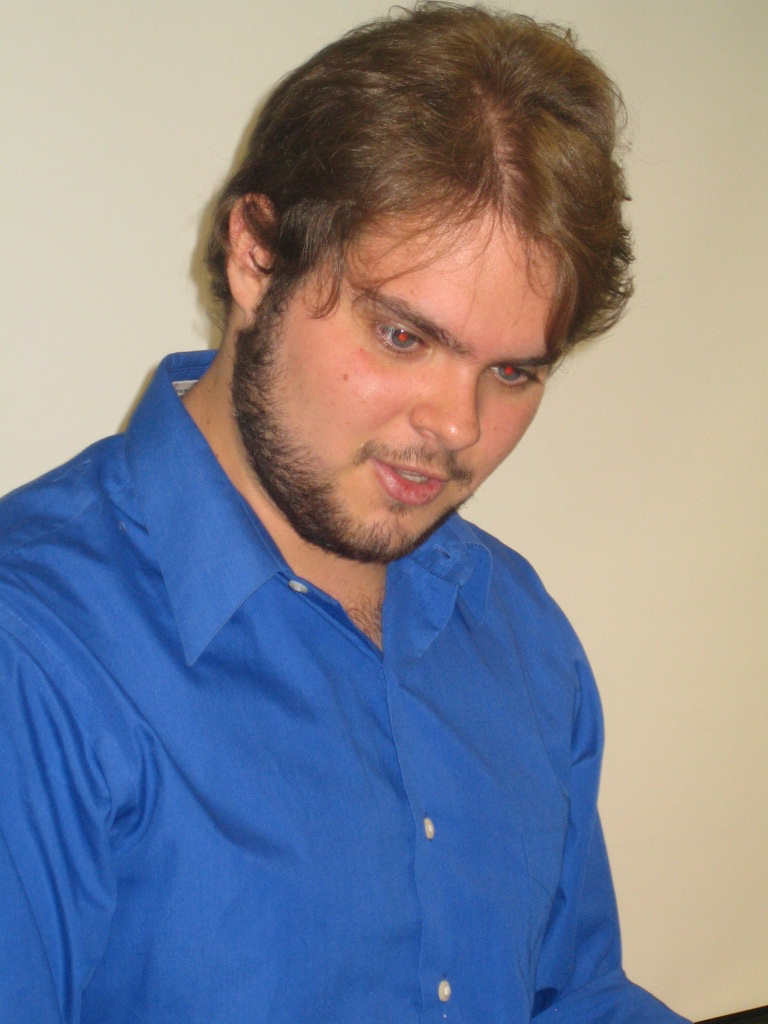Serendip is an independent site partnering with faculty at multiple colleges and universities around the world. Happy exploring!
Neuroscience and a Sense of Place
 |

|
Wendy Sternberg and Alex Tuttle
Haverford College Psychology Department
"Neuroscience and a Sense of Place"
Day 7 of Science and a Sense of Place, 2007








Comments
brain
It is important to know how fast the receptors in the brain fatigued, I thought it was just my brain HA HA!
Next year when I teach Language Arts for 90 minutes at a time, I really have to remember the fatiguing brain receptors of my students and to make sure to include different activities during each class.
Engagement
Wendy’s presentation today was excellent and our engagement in the material was obvious. We are so fascinated with how our brains function particularly when it is fooled. The notion that everything we perceive is fabricated by our mind poses questions about the stability of our world. We felt sorry for Clive Wearing but as Wendy pointed out, that’s our perception and we can’t really know Clive’s. I’d like to involve my students in this investigational process, not as a line of study but as a periphery reflection of how we think. To be engaged in the consideration of oneself is the ultimate joy of most teenagers so why not guide them through a philosophical/neuroscientific analysis of themselves and see what cast offs they throw that might enlighten me!
We are our brains
Today's class was a perfect example of the marriage between lecture and inquiry. Wendy had thought provoking questions throughout her lecture, especially when talking about a brain transplant. I guess we really are our brains and have our own reality.Her inclussion of the video clip on Clive Wearing really explained the concept of anterograde amnesia. I know I'll forget that term but not its meaning.
Ashley's lesson today was wonderful. It really made everyone stop and think.It held our attention which isn't always easy after lunch.She mixed things up and had us moving.So we did not "stop paying attention because things were not the same."Ashley will make a wonderful teacher, I hope she never loses her idealism.She can make a difference!
Neuroscience
I was fascinated by this morning's presentation. One of Wendy's exploration questions - "Is your consciousness the same as mine?" - keeps resonating in the back of my mind. When she stated that we often "tend to make that assumption about our students, but it's not our job to fill their brains," it connected with our inquiry learning conversations. It's engaging rather than filling minds that is key in creating the kind of classroom environments in which critical/analytical thinking intertwines with factual learning.
Ashley's experiments engaged our small groups immediately in very comfortable conversations about the whys & hows of our particular activity. In the whole group discussion, I tried to remember high school experiences that stood out because of my personal involvement. It was a strain to recall any, which is why she'll be such a gift to her future students. Concern for helping students make connections as they learn, tempered with idealism, motivation, and engagement are admirable qualities for fresh AND seasoned teachers!
Neuroscience
Morning Response
Neuroscience, the Brains
inquiring about brains
Post new comment